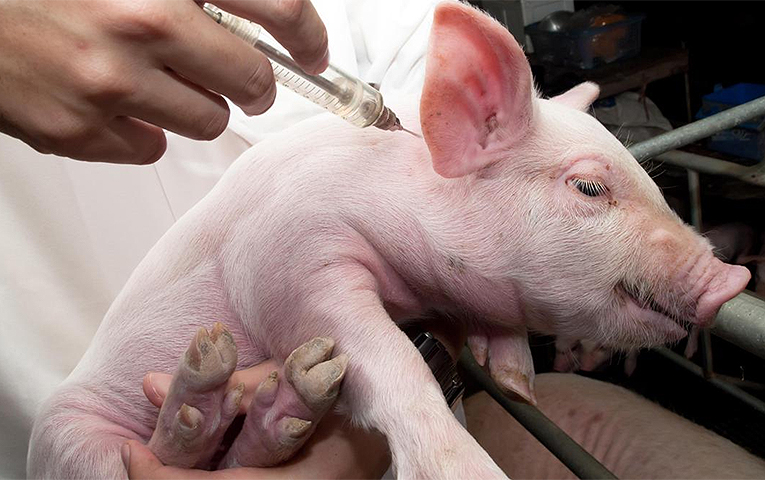French lab makes progress with ASF vaccine

A laboratory of the French government agency ANSES reports promising results in the search for a vaccine against African Swine Fever (ASF).
A vaccine to combat ASF could be produced based on research carried out by ANSES’s Ploufragan-Plouzané-Niort Laboratory. ‘The initial results obtained are promising and are paving the way for an effective means of combating this disease, which is responsible for high mortality rates in pigs and wild boar in several countries in Europe, Asia and the Caribbean,’ the French Agency for Food, Environmental and Occupational Health & Safety says.
As part of its mandate as National Reference Laboratory for ASF, the Pig Virology and Immunology (VIP) Unit of ANSES’s Laboratory inactivated the Georgia 2007/1 viral strain, which is currently circulating in the European Union. While monitoring the effects of this heat inactivation, it happened to detect an attenuated strain, derived from the Georgia strain. This strain only caused a slight fever in infected animals, whereas infection with the Georgia strain is normally fatal in 100% of cases.
The team carried out a series of studies with this attenuated strain and confirmed that most pigs inoculated intramuscularly or oronasally with this virus showing only mild symptoms. Although safety was not perfect, survival was much better than with the original viral strain. “Intramuscular vaccination is the method most commonly used on farms” explains Marie-Frédérique Le Potier, Head of the VIP Unit. “Oral vaccination could be used to vaccinate wild boar using bait. This method was used for classical swine fever in the early 2000s and eradicated the disease from areas of France where it was present. That is why we tested both routes of administration from the beginning”.
Another promising result is that infected pigs develop an immune response, which allows them to resist infection with the ASF virus without showing any symptoms, as early as 2 weeks after vaccination. These results were published in the journal Viruses in December 2022.
ANSES’s scientists continued to work on the attenuated strain, in particular so that it could multiply in cell lines produced in vitro and not in cells that had to be taken from pigs, as had initially been the case. This step was a success, raising the possibility of producing the vaccine on a large scale. As an added bonus, the strain of virus produced in this way caused fewer symptoms than the original attenuated strain, while still being effective.
Studies are still under way, in particular to ensure that this attenuated strain is not transmissable from one animal to another or become virulent again. The scientists will also assess the ability of the vaccine to prevent animals that are vaccinated and then exposed to the pathogenic ASF virus from retransmitting the virus.
The vaccine developed by ANSES’s scientists has the advantage of not being produced by genetic manipulation, making it easier to authorise its use in the wild. In order for these discoveries to lead to effective industrial developments and ultimately to the production of vaccines, it must be possible to transfer them to the veterinary pharmaceutical industry. To this end, the laboratory filed a patent for the vaccine that was published last August. The Ouest Valorisation Technology Transfer Office (TTO) is supporting ANSES in encouraging interested manufacturers to exploit this patent.
Read also
Wheat in Southern Brazil Impacted by Dry Weather and Frosts
Oilseed Industry. Leaders and Strategies in the Times of a Great Change
Black Sea & Danube Region: Oilseed and Vegoil Markets Within Ongoing Transfor...
Serbia. The drought will cause extremely high losses for farmers this year
2023/24 Safrinha Corn in Brazil 91% Harvested
Write to us
Our manager will contact you soon



